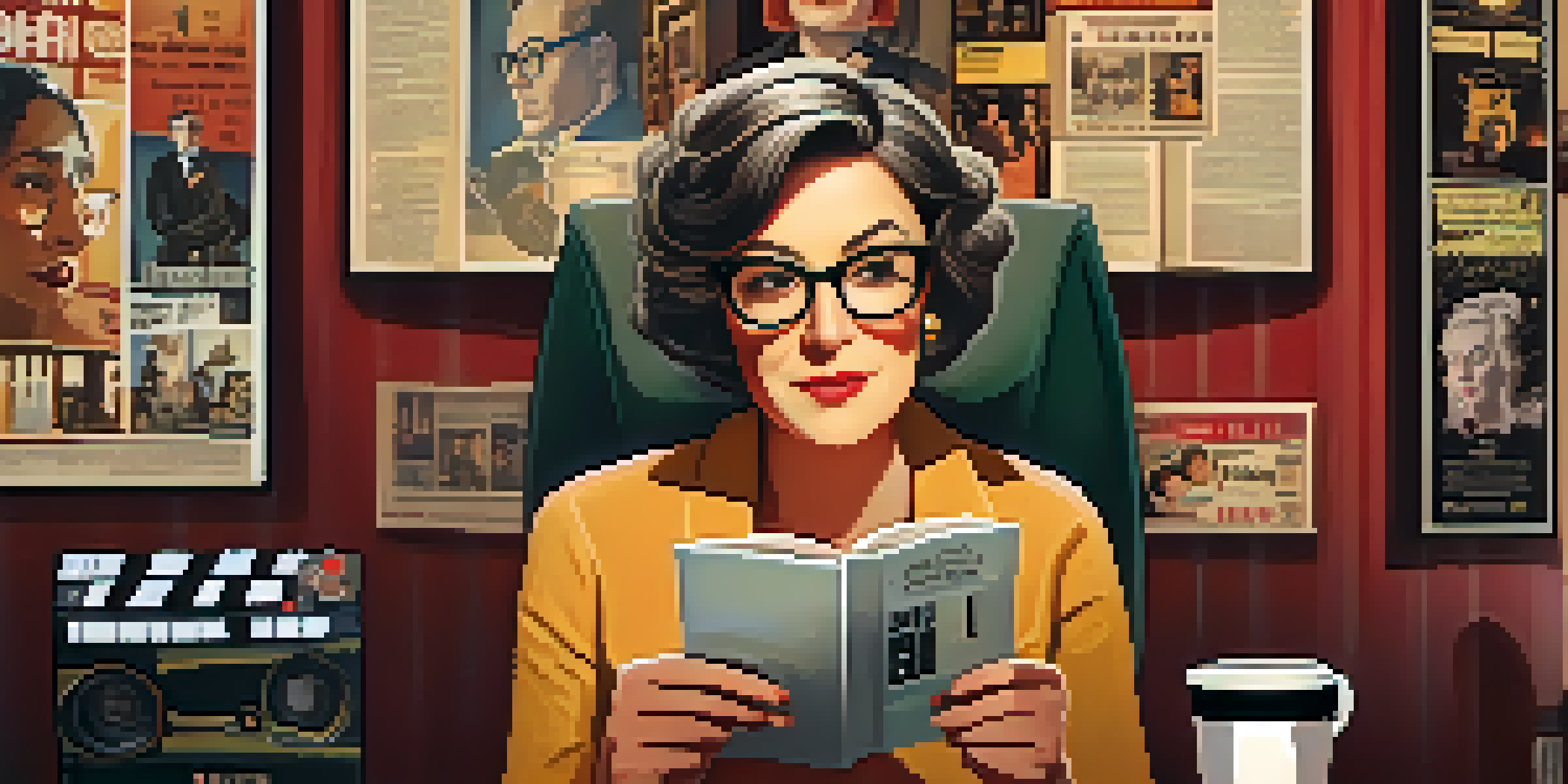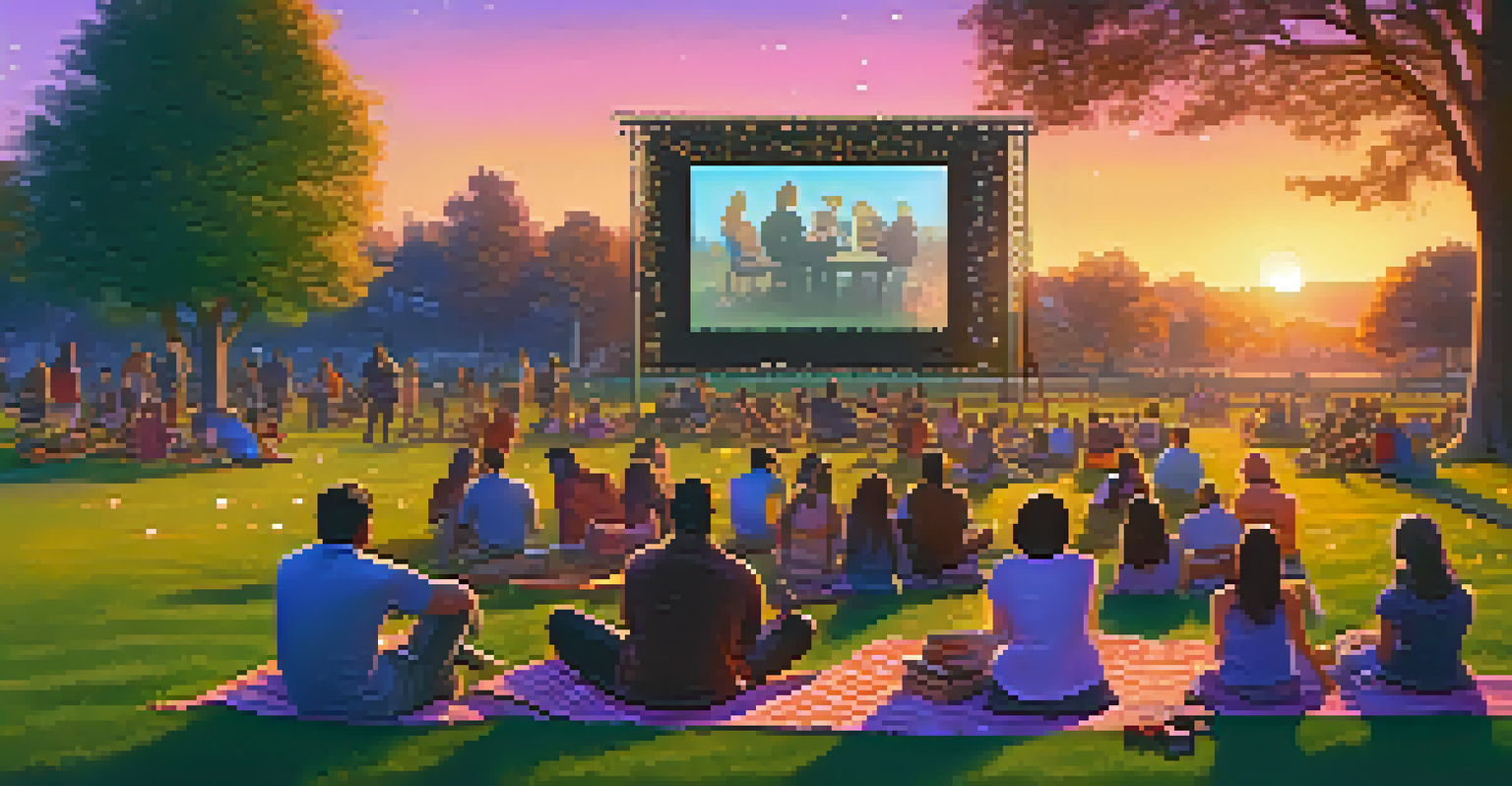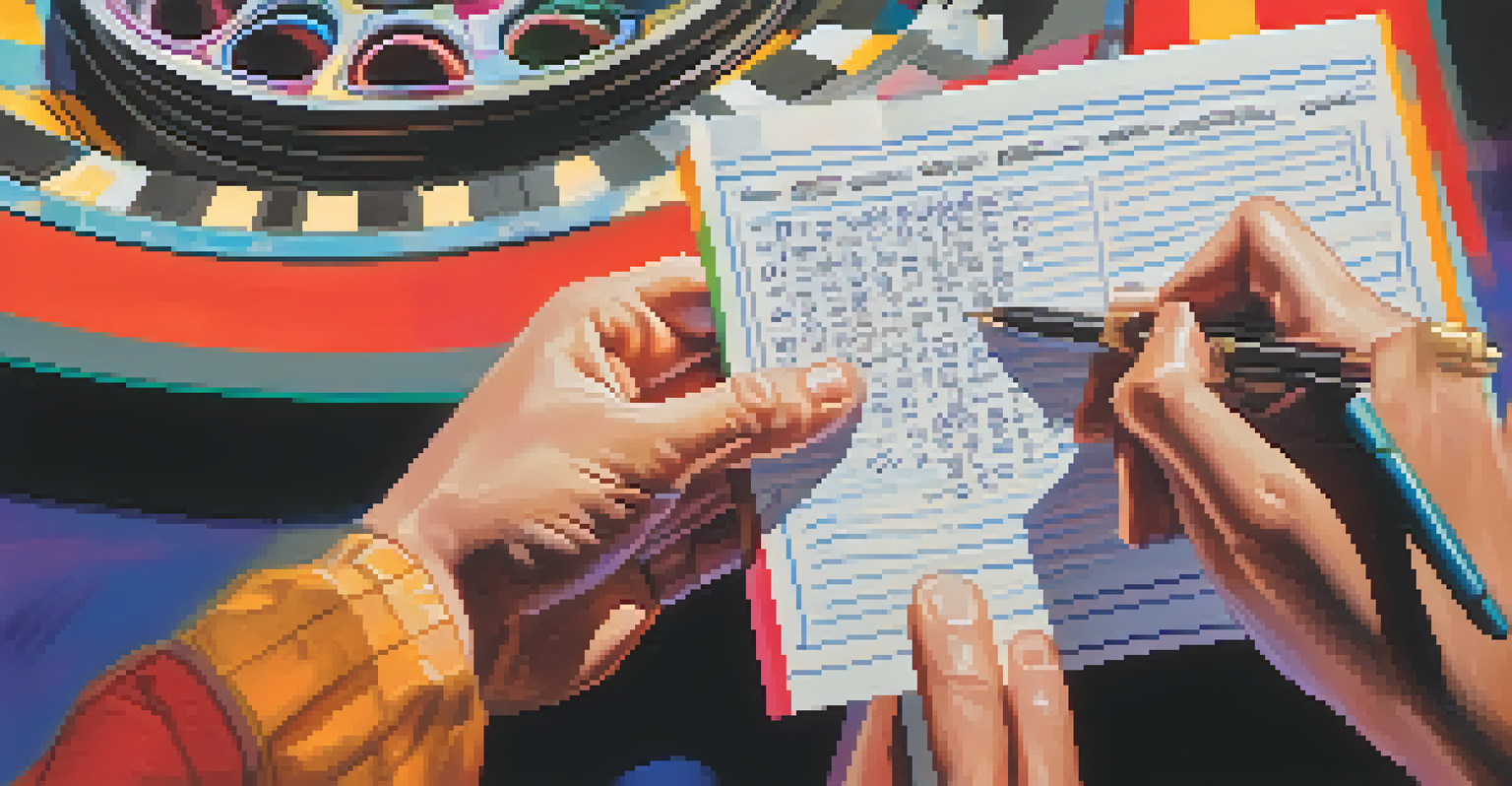Film Critique as a Catalyst for Social Change and Dialogue

Understanding the Role of Film Critique in Society
Film critique serves as a mirror reflecting societal norms and challenges. Critics analyze movies not just for entertainment value, but for their cultural impact and underlying messages. By examining themes, characters, and narratives, critiques can reveal deeper societal issues that may otherwise go unnoticed.
Film is a powerful catalyst for change, and critique can shape how we understand its impact on society.
This critical examination opens the door for conversations about representation, justice, and ethics in our world. For instance, films like '12 Years a Slave' and 'Parasite' have ignited discussions around race and class disparities, demonstrating how cinema can influence public perception and awareness.
Moreover, film critique contributes to a broader understanding of diverse perspectives, encouraging audiences to engage with narratives that differ from their own experiences. This engagement can foster empathy and promote social cohesion, making film critique a vital catalyst for dialogue.
How Film Critique Sparks Important Conversations
Critique often serves as a starting point for conversations surrounding pressing issues. When critics dissect a film's portrayal of, say, mental health or gender roles, they invite viewers to reflect on these topics in their own lives. This reflection can lead to meaningful discussions that extend beyond the cinema.

For example, the film 'The Pursuit of Happyness' not only tells a touching story but also raises questions about socioeconomic mobility and the struggles faced by the underprivileged. Critics who explore these themes help audiences recognize the film's relevance to real-world issues, encouraging further dialogue.
Film Critique Mirrors Society
Film critique reflects societal norms and challenges, revealing deeper issues through analysis of themes and narratives.
Consequently, film critiques can act as springboards for public discourse, allowing communities to engage with complex topics in a more approachable manner. This dialogue is crucial for fostering understanding and initiating change in societal attitudes.
The Impact of Social Media on Film Critique
In the digital age, social media has transformed the landscape of film critique. Platforms like Twitter and Instagram allow critics and viewers alike to share their thoughts instantly, creating a vibrant dialogue around new releases. This immediacy can amplify discussions, drawing in a wider audience than traditional outlets.
Movies are a reflection of our society, and the role of the critic is to hold a mirror up to that reflection.
Moreover, social media provides a platform for marginalized voices that may have been overlooked in mainstream critique. Independent critics can share their insights, bringing attention to films that address underrepresented issues and perspectives. This democratization of critique enriches the overall conversation.
As a result, social media not only influences how films are critiqued but also shapes the narratives that gain traction in public discourse. The collaborative nature of these platforms encourages a more diverse range of opinions and fosters a culture of active engagement.
Case Studies: Films That Changed Societal Perspectives
Several films have acted as catalysts for social change, and their critiques have played a key role in this process. For instance, 'Black Panther' not only broke box office records but also sparked discussions about representation in Hollywood. Critics emphasized its cultural significance, encouraging a reevaluation of how Black stories are told.
Similarly, 'Boys Don't Cry' brought attention to transgender issues and violence against LGBTQ+ individuals. The film’s critique highlighted the need for greater awareness and advocacy, leading to increased dialogue and activism around these topics. Such films demonstrate the power of critique in shaping societal narratives.
Social Media Transforms Critique
Social media empowers diverse voices in film critique, fostering a richer dialogue around cinematic works and their cultural significance.
These case studies illustrate that when films resonate with audiences, the subsequent critique can drive change. By analyzing and discussing these films, critics contribute to a broader understanding of social issues and inspire movements toward equity and justice.
The Role of Critics in Promoting Inclusivity
Film critics hold a unique position in promoting inclusivity within the industry. By highlighting films that showcase diverse voices and stories, they can influence production choices and audience interest. This advocacy is essential for ensuring that underrepresented groups find their narratives on screen.
For example, the rise of critical acclaim for films directed by women or featuring LGBTQ+ characters encourages studios to invest in diverse storytelling. Critics who champion these films not only validate their importance but also help shift industry standards toward more inclusive practices.
Ultimately, the role of critics extends beyond simple analysis; it involves actively promoting social equity through the films they choose to support. By prioritizing inclusivity in their critiques, they help shape a more representative cinematic landscape.
Challenges and Responsibilities of Film Critique
While film critique can drive social change, it also comes with challenges and responsibilities. Critics must navigate their biases and ensure that their analyses are fair and constructive. This responsibility is crucial, as a single critique can influence public perception and potentially impact filmmakers' careers.
Moreover, critics need to be aware of the power dynamics inherent in their roles. They must strive to elevate voices from marginalized communities rather than overshadow them with their own narratives. This self-awareness fosters a more equitable dialogue within the film industry.
Critics Promote Inclusivity
Film critics play a crucial role in advocating for diverse narratives, influencing industry practices toward greater representation.
Ultimately, being a film critic requires a balance of passion for cinema and a commitment to social justice. By recognizing their influence, critics can use their platform to advocate for positive change while encouraging meaningful conversations.
Looking Ahead: The Future of Film Critique and Social Change
As society continues to evolve, so too will the role of film critique in driving social change. The increasing focus on diversity and representation in storytelling means that critics will play an essential role in shaping the narratives of tomorrow. Their insights will be vital in highlighting films that address contemporary issues.
Emerging technologies, such as virtual reality and streaming platforms, also present new opportunities for film critique. These innovations can broaden the scope of storytelling and critique, allowing for more immersive and diverse narratives. As audiences become more engaged, the potential for critique to spark dialogue only grows.

In conclusion, the future of film critique is bright, with the potential to influence social change more than ever. By embracing their role as catalysts for dialogue, critics can help shape a more just and inclusive society through the power of cinema.